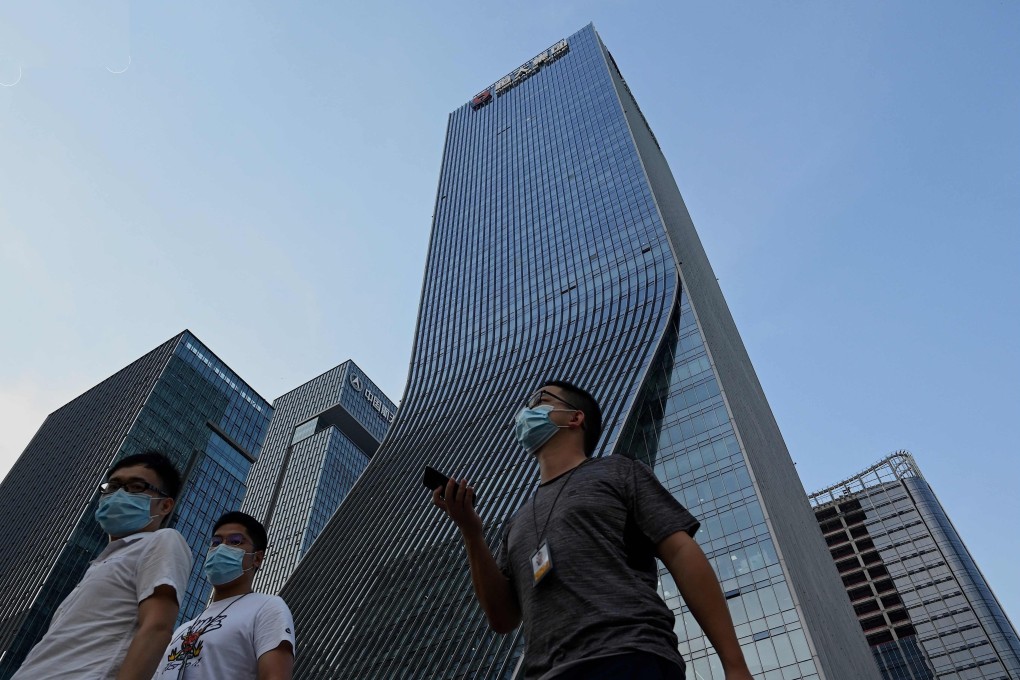Default by China Evergrande unlikely to spark malaise that threatens China’s financial system, analysts say
- Comparison to collapse of Lehman Brothers ‘far-fetched’, analysts say
- Beijing not expected to take action, Evergrande hit to financial system ‘manageable’, S&P says

“We don’t expect government actions to help Evergrande unless systemic stability is at risk. A government bailout would undermine the campaign to instil greater financial discipline in the property sector,” S&P Global Ratings analysts Matthew Chow and Christopher Yip said in a research note. “Government support to prevent a default is only likely if contagion risks cause other large developers to fail. This could threaten the stability of the financial system and economy. We think the hit to the financial system from Evergrande alone will be manageable.”

02:28
Angry protest at headquarters of China Evergrande as property giant faces liquidity crunch
The worries about cash-strapped Evergrande’s ability to repay its massive debt load comes as Beijing has been trying to cut borrowing levels in China’s property sector and after warnings by foreign investors about rising debt levels in the mainland.